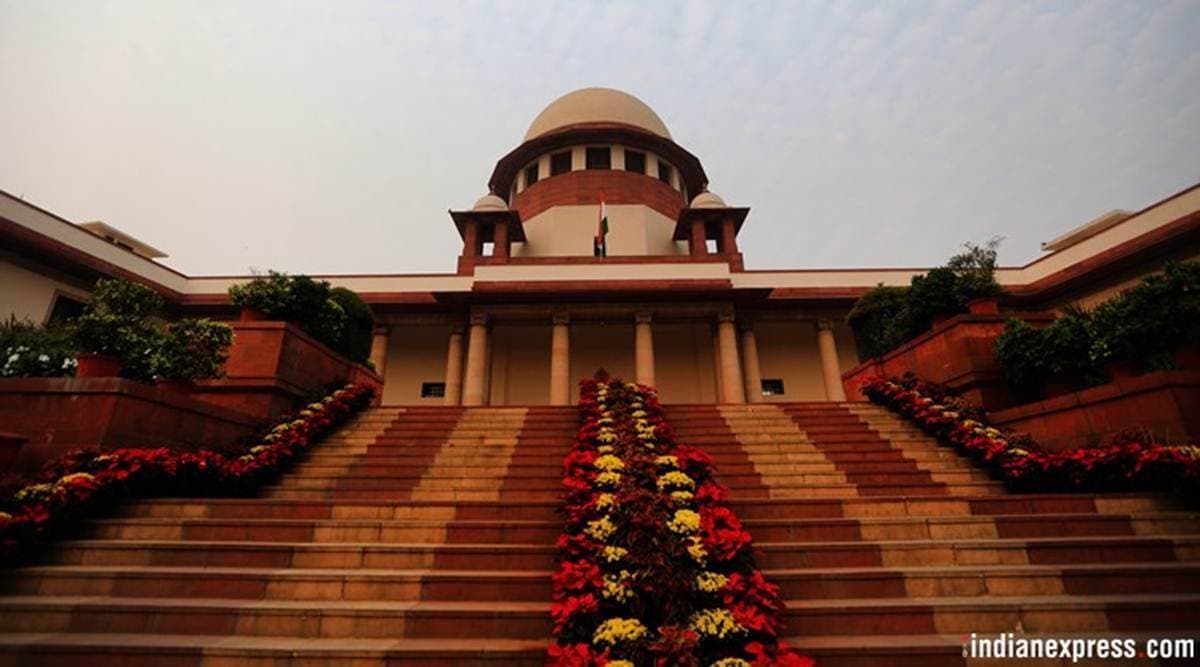A DAY after it promulgated an ordinance to create a National Capital Civil Service Authority empowered to recommend transfers and postings of all Group A and DANICS officers, the Centre moved the Supreme Court on Saturday, seeking a review of its May 11 judgment which gave control over services to the Delhi government.
Citing “errors” in the judgment, the Centre said it “has the effect of destroying the basic structure of the Constitution, wherein with the effect of conjoint reading of Articles 73, 239AA and 246, the Union has overriding legislative as well as executive powers in respect of a Union Territory which is not a state”.

The judgment “has upset the basic tenets of the constitutional idea of federalism, inasmuch as the NCT (National Capital Territory) of Delhi has been equated to a state, by granting it legislative and executive authority akin to a state, leaving the Parliament with recourse only to its plenary powers to legislate for a territory that is its own and not an independent federal unit, as though it were to legislate for a state,” it said.
“It is submitted that the said judgment suffers from an error apparent on the face of the record as it suffers from a fundamental fallacy… as it ignores that the working and functioning of the capital government affects the nation as a whole,” it said, adding that “the nominee of the President, the Lieutenant-Governor or the central government, both are also manifestations of democracy when compared to the elected government of Delhi”.
The Centre also asked for its review plea to be heard in open court – review petitions are usually heard in chamber unless the court decides otherwise — and that it be referred to a larger bench “for further consideration”.
In a unanimous verdict on May 11, the five-judge Constitution bench headed by Chief Justice of India D Y Chandrachud had held that the NCT administration is unlike other Union Territories and has been “accorded a sui generis (unique) status” by the Constitution. It had given the Delhi government control over all services except with regard to those expressly excluded under List II (state list) of the Constitution — public order, police and land.
The ruling, however, clarified that “the executive power of NCTD with respect to entries in List II and List III shall be subject to the executive power expressly conferred upon the Union by the Constitution or by a law enacted by Parliament”.
Story continues below this ad
Apparently acting on this, the Centre on Friday promulgated an ordinance to create an authority which will decide the service conditions, transfer and posting of officers. The authority will be chaired by the Delhi Chief Minister and will include the Chief Secretary and the Principal Secretary, Home, and “all matters… shall be decided by majority of votes of the members present and voting.” This, effectively, means two bureaucrats, appointed by the Centre, could overrule the elected CM.
The ordinance also empowers the L-G to “return the recommendation to the authority for reconsideration”, adding that in case of difference of opinion, “the decision of the L-G shall be final.”
The Centre, in its review plea on Saturday, said the May 11 ruling is “contrary” to the December 1996 decision of a nine-judge bench in NDMC vs State of Punjab, which concluded that despite the insertion of Article 239AA (special provisions with respect to Delhi), the NCT is not elevated to the status of a state.
It said the ruling “wholly ignores that (as per) Article 239AA read with the Government of National Capital Territory of Delhi Act, 1991, Delhi continues to be Union Territory, however, with a Legislature as recognised and held by a bench of nine Judges”.
Story continues below this ad
“The inevitable conclusion that Delhi was and remains Union Territory as held in NDMC… is accepted by the (five-judge Constitution bench) judgment in 2018,” it said.
The Centre said it had pointed this out in an application seeking reference to a larger bench, but the request was not granted by the Constitution bench which delivered the May 11 decision.
The May 11 ruling had extended the definition of state in the General Clauses Act to the UT of Delhi. Countering this, the Centre’s plea said: “It had never been the intention of Parliament (in its constituent power) that the word state, in relation to Part VI (which deals with state government) and Part XIV (provisions for regulating the employment of persons to the public services under the Union and the states) of the Constitution, would include a Union Territory”.
“The judgment… wholly ignores that where there exists an express provision in the Constitution occupying an issue, the reliance on General Clauses Act would not be appropriate,” it said.
Story continues below this ad
The judgment “wholly ignores that the Constitution has never contemplated a separate service cadre for Union Territories. This is for the simple reason that a Union Territory is a mere extension of the Union of India and persons working in Union Territories are working in services and posts in connection with the affairs of the Union,” it said.
“Therefore, to the extent the said judgment holds that the ideal conclusion would be that GNCTD ought to have control over services, subject to exclusion of subjects which are out of its legislative domain, as the ministers who are charged with formulating policies in the territory of NCTD would be excluded from controlling the civil service officers… is completely self-contradictory, in ignorance of the submissions made before the bench and further ex-facie an error apparent,” it said.









